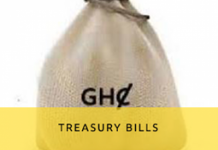The Ghanaian cedi has started 2025 with an average depreciation of 2% against major trading currencies, indicating ongoing challenges in stabilizing the local currency.
According to the Bank of Ghana’s latest Summary of Economic and Financial Data, the cedi has weakened by 2.4% against the US dollar, 3.0% against the Euro, and 0.8% against the British Pound as of January 2025. The exchange rates are currently GHS 15.06 per dollar, GHS 15.69 to the Euro, and GHS 18.55 to the pound.

However, forex market rates are trading higher, with the dollar ranging between GHS 15.90 and GHS 16.20, which is driving up import costs and external transactions.
This depreciation is mainly due to heightened demand for foreign exchange driven by imports and external debt servicing, as well as market pressures from tightening global financial conditions, fiscal imbalances, and high inflation.
Government and the central bank are expected to prioritise boosting foreign exchange reserves to tame the pressures.
Other measures industry players suggest include export diversification, reduced import reliance and prudent fiscal policies to stabilise the currency and support Ghana’s economic recovery.
The cedi’s performance will remain one of the indicators to address Ghana’s economic challenges throughout 2025.
























































![[FREE FREE MONEY] Predict and Win a Guaranteed GH¢200 From Us EVERY WEEK](https://wordpress.ghanatalksradio.com/wp-content/uploads/2022/02/Predict-and-Win-Final-09-03-2021-218x150.jpg)
![[Predict & Win – 8th/Oct.] WIN A Guaranteed ¢200 From Us This Week](https://wordpress.ghanatalksradio.com/wp-content/uploads/2021/10/maxresdefault-16-218x150.jpg)
![[Predict & Win – 2nd] WIN A Guaranteed ¢200 From Us This Week](https://wordpress.ghanatalksradio.com/wp-content/uploads/2021/09/maxresdefault-50-218x150.jpg)
![[Predict & Win – 25th] WIN A Guaranteed ¢200 From Us This Week](https://wordpress.ghanatalksradio.com/wp-content/uploads/2021/09/maxresdefault-36-218x150.jpg)
![[Predict & Win – 18th] WIN A Guaranteed ¢200 From Us This Week](https://wordpress.ghanatalksradio.com/wp-content/uploads/2021/09/maxresdefault-23-218x150.jpg)








![[National cathedral] See full list of churches that have contributed since 2018](https://wordpress.ghanatalksradio.com/wp-content/uploads/2020/09/Ghana-National-Cathedral-GhanaTalksRadio-100x70.jpg)
![[Watch GTR News] Dozens killed amid fresh fighting; Ghana receives 44.7 million; more](https://wordpress.ghanatalksradio.com/wp-content/uploads/2022/04/maxresdefault-1-100x70.jpg)


